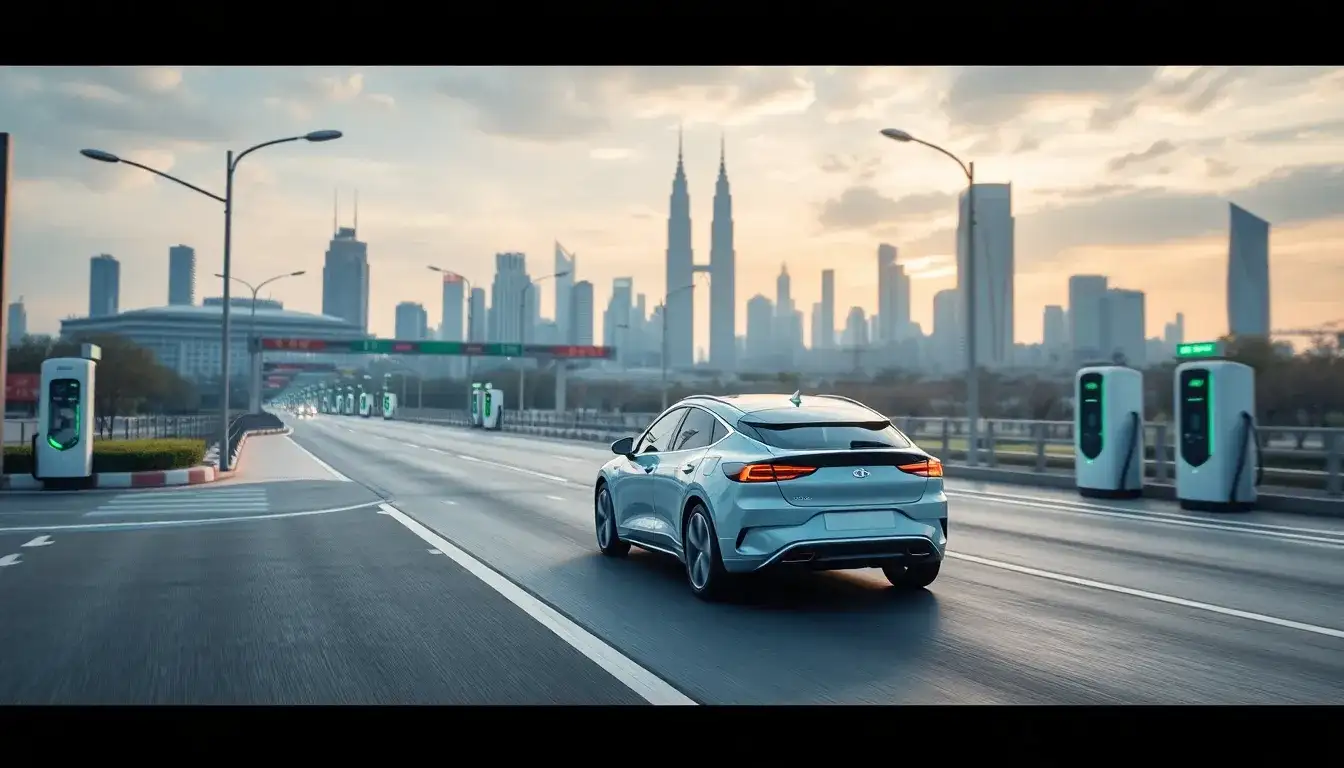
Technological Breakthroughs, AI Integration, and Growing Demand: The future of China’s electric vehicle industry is promising. On March 30, 2025, a significant discussion took place regarding the development of the electric vehicle market in China, highlighting the need for new energy vehicles to adapt to evolving technologies and consumer demands.
China plans to enhance its new energy vehicle market by promoting high-quality electric vehicles. The Ministry of Industry and Information Technology indicated that there are conditions in place to improve the production capacity of L3-level autonomous vehicles, ensuring that policies will continue to support robust production growth in this sector.
Furthermore, advancements in battery technology, vehicle design, and high-efficiency hybrid power systems are set to drive innovation in the industry. In terms of autonomous vehicle development, there are ongoing trials for intelligent connected vehicles, which are expected to further solidify the production capacity of L3-level autonomous vehicles.
The National Energy Administration has announced plans to accelerate the deployment of new technologies and innovations in the electric vehicle sector. By 2024, it is projected that the total installed capacity of electric power infrastructure in the country will reach 1,281.8 GW, reflecting a 49.1% increase compared to previous years. The administration will continue to promote the installation of electric facilities to support the growth of new energy technologies and businesses.
One of the major challenges facing the electric vehicle industry is the development of battery technology. Recently, a company has introduced a new electric battery that can deliver up to 1,000 kilometers on a single charge, achieving 80% efficiency within just six minutes of charging. This innovation is expected to significantly enhance the adoption of electric vehicles.
AI integration has been transformative for the new energy vehicle sector. Since the inception of the “AI+” concept, the number of new energy vehicles utilizing autonomous driving capabilities has increased dramatically. Companies are leveraging AI to improve vehicle response times by up to 40%, with recognition rates for images reaching as high as 98%.
The latest generation of AI technology has also allowed vehicles to achieve a “five-sense” recognition system, enabling them to understand and respond to various environmental factors. For instance, the system can recognize 56 different dialects and can process complex driving scenarios in real time.
This advancement is based on training models derived from a massive dataset of 300 billion pieces of data, allowing vehicles to make predictions about road conditions with precision. The industry is seeing a push for higher standards in autonomous driving capabilities, which are expected to be implemented in various models by the end of the year.
In conclusion, the electric vehicle industry is on the verge of significant advancements, thanks to technological innovations and a strong push towards integrating AI. The future looks bright as China continues to invest in new energy vehicles, setting the stage for a more sustainable automotive landscape.







